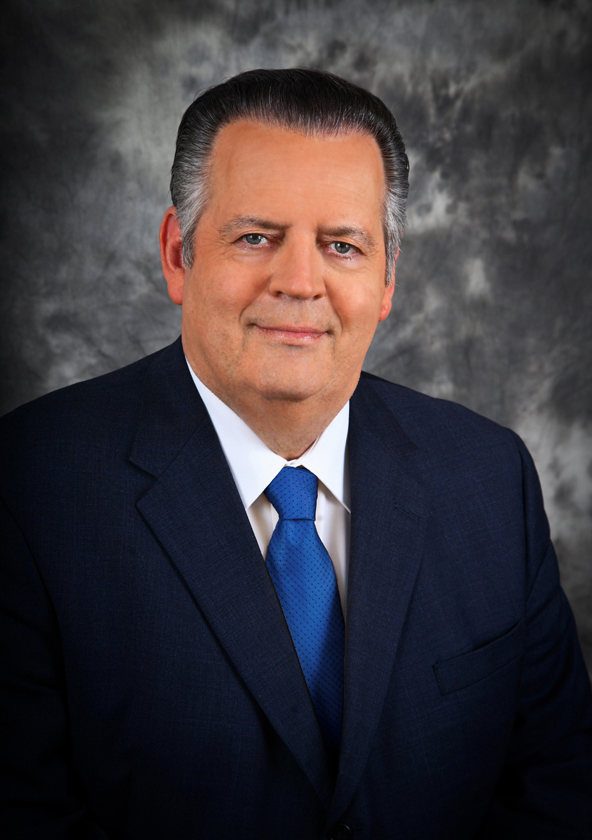
NASHVILLE, Tenn. (BP) — The Trayvon Martin case embodies a multiplicity of tragedies that should cause Americans of every ethnicity to grieve for those who have been hurt by its far-reaching impact.
We grieve for the loss of a young black man who had so much of his life left to live. We grieve for the fact that he will never experience the joys of marriage and parenthood. We grieve for his parents and his loved ones. We lament that a community has been torn apart by racial division and growing mistrust of authorities.
We also have sympathy for the person who pulled the trigger, George Zimmerman, a 28-year-old Hispanic man who was a captain in his neighborhood crime watch program. Whether he is found guilty by a jury of his peers or not, his life will never be the same.
And we are deeply distressed that some have used the occasion of this tragedy to fan the flames of racial unrest in the community and nation. The rush to judgment by a handful of activists, aided and abetted by willing and complicit elements in the national media, have trampled our justice system’s bedrock principle of “innocent until proven guilty.”
The premise that each of us is innocent until proven guilty beyond a reasonable doubt by a jury of our peers is the greatest guarantee of our individual liberty. That principle protects all Americans, regardless of ethnicity, from government abuse of power. When it is undermined, we suffer a collective loss of freedom.
If a person is tried and the facts prove his innocence in a court of law, where does he go to get his reputation back? If millions of Americans already are convinced he is guilty before the evidence is presented before an impartial judge and jury, what hope does he have of reclaiming normalcy in his life? Let’s ask the Duke University lacrosse players from 2006 and Atlanta’s Olympic security guard Richard Jewell from 1996.
Should George Zimmerman be crucified in the court of public opinion for the sins of past generations of whites, sins with which he was not involved? How does that foster the cause of racial reconciliation, or simple decency and justice?
This is dangerous behavior on many levels. It is undeniable that African-Americans have suffered unimaginable abuses at the hands of a sometimes racist justice system. Does this justify the equivalent of yelling “Fire!” in a crowded theater by hurling charges of racism and denied justice before the facts have been thoroughly reviewed and adjudicated?
The multiple investigations currently being conducted by local, state and federal authorities will determine whether or not George Zimmerman is guilty and what his punishment should be. When an organization like the New Black Panther Party distributes posters claiming George Zimmerman is “Wanted: Dead or Alive” with a monetary reward attached, justice is being denied. This kind of irresponsible vigilante behavior is inexcusable and must not be tolerated in a nation ruled by law. It is anarchy run amuck.
To assert that George Zimmerman is guilty of murder is, at this point, premature. It is irresponsible for anyone to say they “know” that which is currently unknowable — namely, what actually happened on that tragic night in February. The authorities are investigating reportedly conflicting evidence and eyewitness accounts.
The exploitation of this tragic event by people who should know better is shameful. Surely Jesse Jackson knows that substantial racial progress has been made in America. Trayvon Martin is not, as Jackson suggested, today’s Emmett Till. Al Sharpton’s demand that George Zimmerman be arrested immediately was equally irresponsible.
Sharpton’s call for the African-American community to “move to the next level” of peaceful civil disobedience and economic sanctions if Zimmerman’s arrest had been delayed any longer caused Turner Clayton, the president of the Seminole County (Fla.) chapter of the NAACP, to distance himself and his organization by saying they were “not calling for any sanctions, against any business, or anyone else.” Clayton went on to say, “What Reverend Sharpton does, that’s strictly the [National] Action Network. We cannot condone that part of the conversation.” Clayton went on to say that people would have to judge for themselves “whether they want to follow the mission of the NAACP or follow what the Reverend Sharpton said.”
Some have said that I, by criticizing this rush to judgment, have set back the cause of racial reconciliation. Real racial reconciliation, to which I have been committed for my entire ministry, involves treating people as equals. Among other things, it means speaking the truth in love and not being called a racist when you are the bearer of uncomfortable truths. True racial reconciliation means you can criticize black leaders when you believe they have been wrong without being labeled as a racist. True racial reconciliation means that you do not bow to the false god of political correctness.
–30–
Richard Land is president of the Ethics & Religious Liberty Commission of the Southern Baptist Convention. Get Baptist Press headlines and breaking news on Twitter (@BaptistPress), Facebook (Facebook.com/BaptistPress) and in your email (baptistpress.com/SubscribeBP.asp).

















